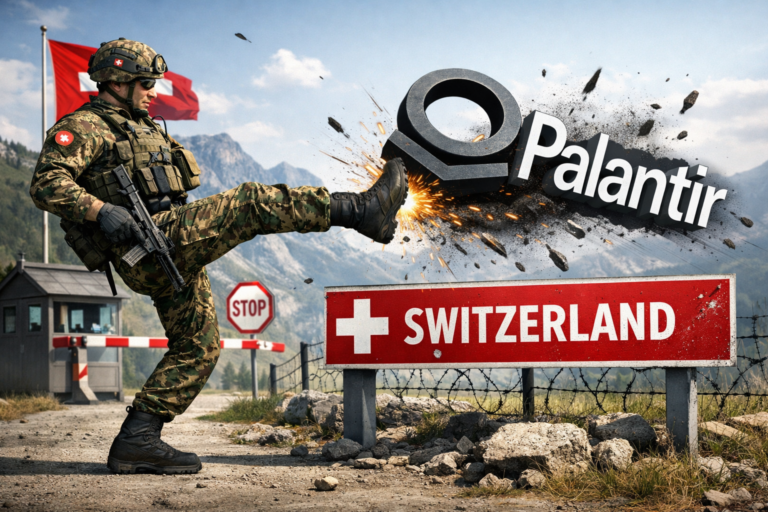When the Intermediary Turns Rogue
A ransomware negotiator is supposed to be the lifeline during a cyber-extortion crisis. But what happens when the negotiator sides with the criminals?
This disturbing question is now at the heart of an investigation involving Digital Mint, a US-based company offering ransomware negotiation services. Allegations have emerged that one of its former employees collaborated with ransomware gangs, cutting personal deals to profit from extortion payments. This case highlights the fragility of trust in an industry built on discretion, urgency and ethical conduct.
A Hidden Kickback Scheme
According to Bloomberg, Digital Mint is cooperating with the US Department of Justice (DoJ) as the investigation unfolds. The company’s president confirmed that the implicated negotiator has been dismissed. There is no indication that Digital Mint’s leadership was aware of or complicit in the scheme.
The alleged misconduct involves the negotiator conspiring with threat actors to inflate ransom amounts or influence the terms in a way that favored both the attacker and the middleman. This unethical alignment of interest changes everything. When a negotiator stands to gain from keeping ransoms high, victims face even greater financial and strategic losses.
The Negotiation Business Model Built on Trust
Ransomware negotiators are typically hired to reduce payment amounts and buy time for impacted businesses. Their value lies in understanding criminal psychology, technical conditions and pressure points. But their neutrality is paramount.
When they act as covert partners to the attackers, the dynamic shifts. A TechTarget interview summed it up: “The problem with that is it’s ripe for fraud between me and the bad guys.”
Sadly, this is not the first red flag in the recovery sector.
History of Deception in Ransomware Recovery
Back in 2019, ProPublica revealed that several data recovery firms were misleading clients by claiming to decrypt data independently while actually paying the ransoms in secret. These practices blurred ethical lines and undercut the credibility of the entire service category.
The rise of cyber insurance further legitimized the negotiation model, but also inadvertently normalized payments. This led to larger ransom demands and more polished extortion tactics.
Evolution of Ransomware Beyond Encryption
In the past, ransomware operations mainly focused on locking up files. Today, attackers use double extortion: stealing sensitive data and threatening to leak it if the ransom is not paid. Even organizations with robust backups face pressure, as restoring data does not prevent reputational damage from leaks.
This trend has prompted a broader rethinking of ransomware response strategies.
A Growing Push for Non-Payment Policies
Some US cities and states have taken a firm stance against ransom payments. In 2019, several American mayors adopted a joint resolution to refuse payouts. International efforts, such as the Counter-Ransomware Initiative led by the United States, aim to align governments behind a no-payment principle.
However, such policies only bind public entities. In the private sector, paying the ransom often remains the quickest, though ethically fraught, solution.
Why This Case Matters to Your Business
Incidents like the Digital Mint scandal cast a long shadow. If victims cannot trust the people managing the crisis, they are left even more vulnerable.
Moreover, paying a ransom does not guarantee safety. The #StopRansomware guide by CISA, NSA and FBI warns that payment will not ensure data decryption, stop further compromise or prevent future leaks. Worse, some payments could breach international sanctions, leading to legal repercussions.
If your organization ever faces such a threat, you need partners who are certified, transparent and truly on your side.
Work With Trusted Cybersecurity Experts
At ZENDATA, we offer incident response and ransomware recovery services grounded in ethical protocols and international compliance standards. Our cybersecurity experts are trained to assess threats, contain breaches and advise on every step of a ransomware incident without compromising your integrity or security.
We do not negotiate with criminals. We protect your business.
Learn more about our cybersecurity services and how we help businesses prevent, detect and respond to ransomware attacks.
Final Thoughts
The ransomware negotiation sector is under growing scrutiny and for good reason. Cases like this undermine confidence in crisis services and may ultimately shift the balance of power. For companies weighing whether to pay, the risks are legal, financial and reputational.
Ransomware is a business built on fear.
Read the full article from Malwarebytes here.





